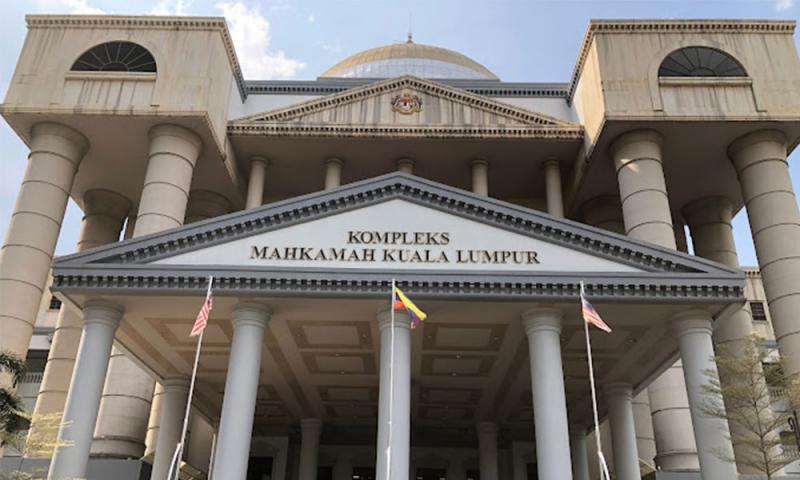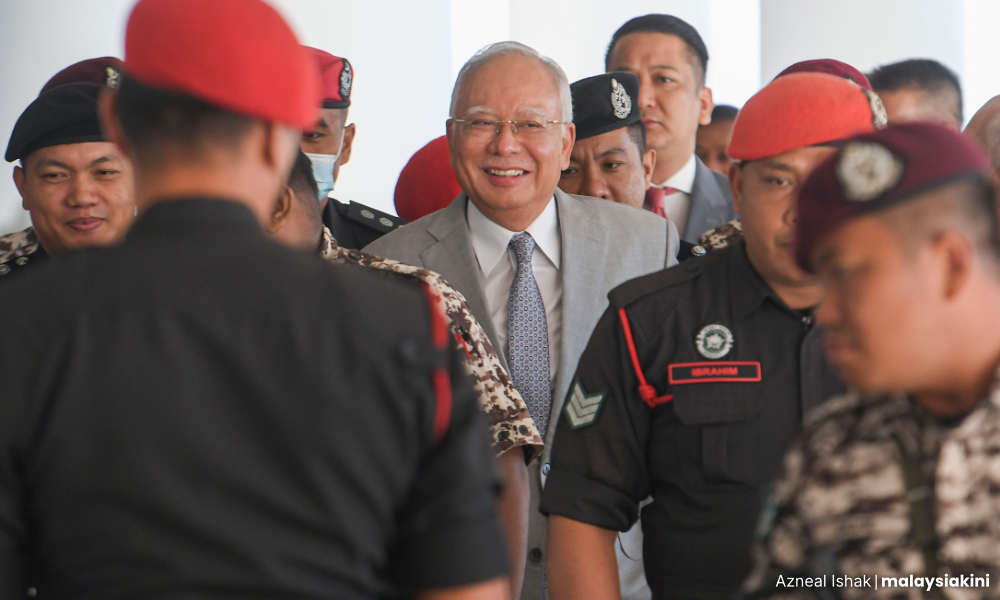
No disputing Agong's power to reduce sentence - Najib's lawyers
Hidir Reduan Abdul Rashid
Published: Sep 18, 2024 7:59 PM
The Yang di-Pertuan Agong’s constitutional power to reduce Najib Abdul Razak’s jail sentence and fine cannot be challenged in court, according to the ex-prime minister’s legal team.
In written submissions by law firm Shafee & Co, they told the Kuala Lumpur High Court that His Majesty’s power is protected by the Federal Constitution.
Najib’s lawyers pointed out that the Malaysian Bar cannot try to differentiate between the advice of the Pardons Board and the Agong’s exercise of royal prerogative to follow or ignore the advice.
The Bar is seeking civil court leave to proceed with its judicial review to challenge the Pardons Board’s advice for Najib’s sentence reduction on Jan 29.
The decision resulted in a discount of the ex-finance minister’s prison sentence from 12 years to six years, and his fine from RM210 million to RM50 million.
Najib is currently incarcerated over the RM42 million SRC International corruption case.

Former prime minister Najib Abdul Razak
“In essence, the applicant’s (Bar’s) approach overlooks the fact that the authority to grant pardons is an exclusive prerogative that cannot be encroached upon by questioning the advisory role of the Pardons Board.
“The decision to pardon, regardless of the Board’s involvement, remains solely within the purview of the monarch and is beyond the reach of judicial scrutiny,” Najib’s lawyers contended.
AGM contention
The ex-Pekan MP’s counsel also raised their previous contention that the Bar’s judicial review was doomed from the start due to its allegedly invalid annual general meeting (AGM) earlier this year.
Najib’s legal team contended that the Bar decided to launch the judicial review during its 78th AGM in March, which had fewer than 500 attendees.
They claimed this was a breach of the minimum 500 AGM attendees requirement under Section 64(5) of the Legal Profession Act 1976 (LPA).
In their written submissions, the Attorney-General’s Chambers (AGC) acting for the Pardons Board raised similar arguments that the Agong’s pardon powers are beyond the jurisdiction of the courts.
However, via their written submissions, the Bar contended that the body’s legal standing to file the action is not constrained by an AGM because it is empowered by the LPA itself.
The Bar pointed to Section 42(1)(a) of the LPA, which empowers it “to uphold the cause of justice without regard to its own interests or that of its members, uninfluenced by fear or favour.”
Civil court judge Ahmad Kamal Md Shahid has set Nov 11 to decide whether to grant leave to the Bar to commence with the judicial review.
If the legal profession body gets leave, the civil court will set a separate date to hear arguments on the merits of the judicial review.
Leave is needed to weed out applications that are frivolous, vexatious, and abuse of the court process.
“In essence, the applicant’s (Bar’s) approach overlooks the fact that the authority to grant pardons is an exclusive prerogative that cannot be encroached upon by questioning the advisory role of the Pardons Board.
“The decision to pardon, regardless of the Board’s involvement, remains solely within the purview of the monarch and is beyond the reach of judicial scrutiny,” Najib’s lawyers contended.
AGM contention
The ex-Pekan MP’s counsel also raised their previous contention that the Bar’s judicial review was doomed from the start due to its allegedly invalid annual general meeting (AGM) earlier this year.
Najib’s legal team contended that the Bar decided to launch the judicial review during its 78th AGM in March, which had fewer than 500 attendees.
They claimed this was a breach of the minimum 500 AGM attendees requirement under Section 64(5) of the Legal Profession Act 1976 (LPA).
In their written submissions, the Attorney-General’s Chambers (AGC) acting for the Pardons Board raised similar arguments that the Agong’s pardon powers are beyond the jurisdiction of the courts.
However, via their written submissions, the Bar contended that the body’s legal standing to file the action is not constrained by an AGM because it is empowered by the LPA itself.
The Bar pointed to Section 42(1)(a) of the LPA, which empowers it “to uphold the cause of justice without regard to its own interests or that of its members, uninfluenced by fear or favour.”
Civil court judge Ahmad Kamal Md Shahid has set Nov 11 to decide whether to grant leave to the Bar to commence with the judicial review.
If the legal profession body gets leave, the civil court will set a separate date to hear arguments on the merits of the judicial review.
Leave is needed to weed out applications that are frivolous, vexatious, and abuse of the court process.
No comments:
Post a Comment